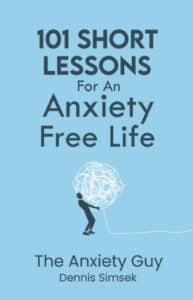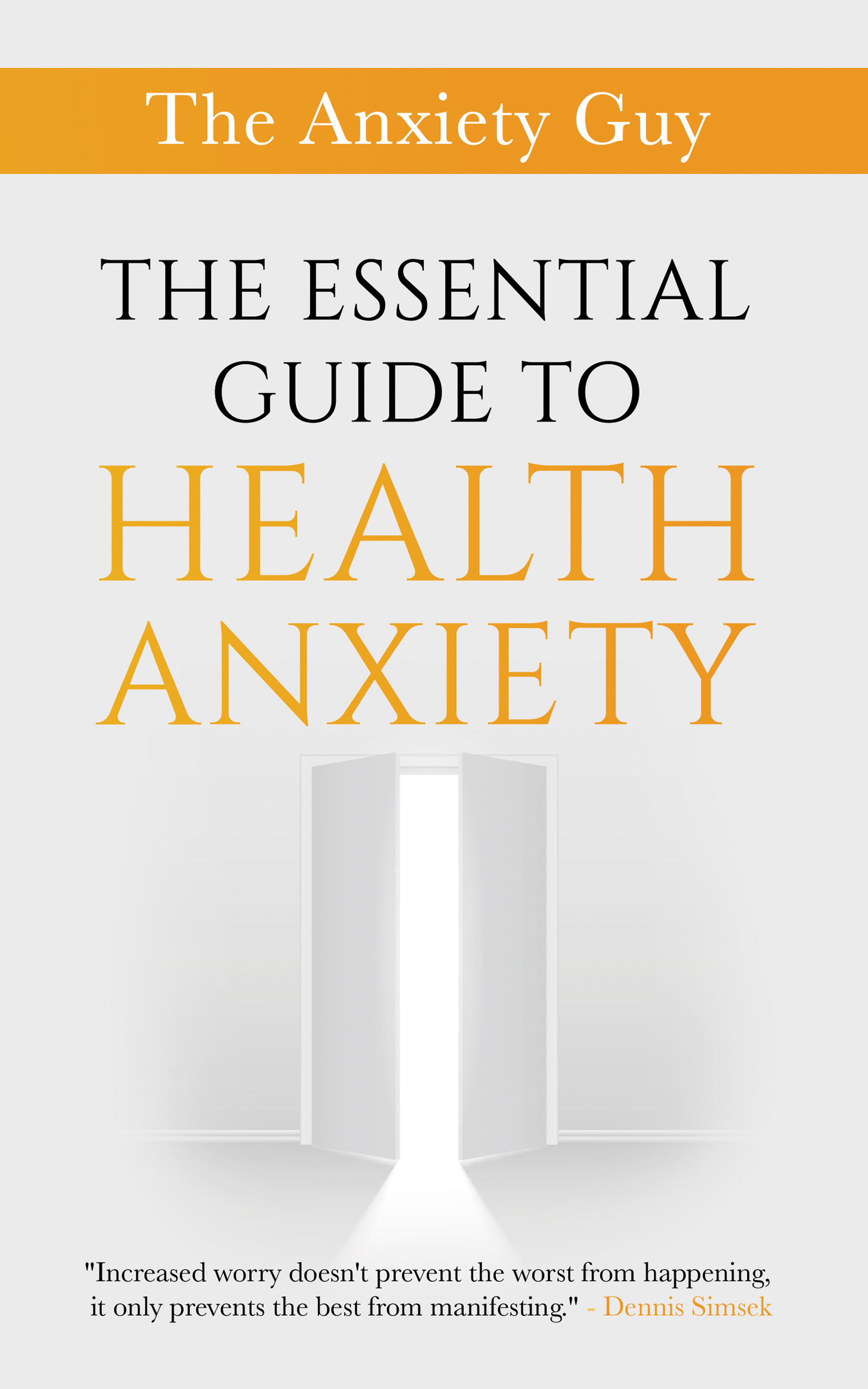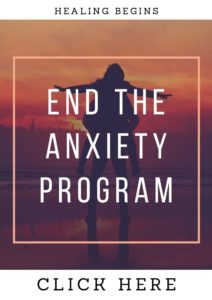
What helps anxiety?
Out of the plethora of options on healing an anxiety disorder what’s a person to do in todays world? It’s information overload no matter where you turn, and it seems like we just can’t get real solid answers to our important questions these days.
This post will be a guide for you.
The goal is to provide you with the strengths and weaknesses when it comes to different healing methods so we can once and for all answer the question of ‘what helps anxiety?’
A couple of important principles before I get to the point of this important post:
- These are based on my own experiences, studies, and the experiences of people I work with.
- These are based on what’s worked the fastest and ‘stuck’ for the longest in terms of healing anxiety.
- This guide should be seen as informative, and you should always work with a professional for any changes you decide to make.
Ok, now that that’s out of the way let’s get to the top 7 list of today’s popular anxiety healing methods:
1. Hypnosis – Altered state work that provides direct access to a persons subconscious mind.
Strengths: I love hypnosis, in fact as a certified hypnotherapist I use it in almost every session I do with my coaching clients. As I leave all biases aside for this post on what helps anxiety though, I believe hypnosis should be a part of every strategy for every journey towards healing.
Hypnosis works fast if a person is absorbed, focused, and fully associated in the process.
The most powerful forms of hypnosis (in my opinion) are the strategies that engage the body as well. Somatic engagement is a vital aspect to hypnosis because it connects the past trauma of a person to where they’re storing the repressed emotion in their body.
We’re always in trance anyway. The goal is to get out of the ones that aren’t helpful and into the ones that are.
Hypnosis gives us an opportunity to bypass what’s known as the ‘critical factor.’ This is a protective part of the subconscious mind that lets the ideas that were accepted from childhood experiences in, and rejects anything that opposes them.
This is why positive thinking strategies fail over and over again.
In order to re-negotiate new core beliefs a person must learn how to bypass the critical factor (the subconscious minds security guard) and communicate with the parts of us that are running our perception of reality.
Weaknesses: Altered state work is what helps anxiety and is a vital component to healing. But one of the weaknesses when it comes to mild or deeper levels of hypnotic work is in a persons inability to let go to the process. Anxiety warriors have a hard time letting go, so hypnosis work may be quite challenging at the start.
Hypnosis also doesn’t come with any tools to be used throughout the day. The effectiveness of this strategy depends on the session that’s taking place. Once that session is done a person is reliant solely on how the hypnotic session went.
This is the biggest reason for why I believe we must combine certain methods in order to answers the question of ‘what helps anxiety’ long term.
2. Cognitive Behavioural Therapy – CBT emphasizes logical and rational ways to see our intrusive thoughts therefore looking to shift our emotional states.
Strengths: CBT is derived by ancient teachings around Stoicism (here’s a YouTube audiobook I created on Stoicism for mental health). Stoicism preaches rational thinking, emotional state control, and is a philosophy that emphasizes the need for balance and harmony no matter what takes place externally.
I’m a huge fan of both Stoicism and Cognitive Behavioural Therapy, and in fact practice the tools within them daily in my own life. The strength behind CBT is it opens us up to new options on how to deal with our problems. Many times these options aren’t at the forefront of our minds since our emotions are the very parts of us making all the decisions.
CBT provides tools that can help an anxiety sufferer take off the old fearful lenses they’ve been wearing, and put on new ones. CBT has the potential to lead a person towards ‘superior thinking’ which entails turning any inner or outer challenge into a neutral experience that can be learned from. Superior thinking is what leads to mastering your mental health.
Weaknesses: CBT can be quite weak in the face of severe anxiety and distress. Logical and rational thinking strategies cannot over-ride a nervous system that is highly invested in fear and survival at every turn. This is where CBT might be more frustrating to utilize than be helpful.
Also, CBT is challenged by its inability to trace back and re-frame past traumatic events. Its strength remains in the present moment, within newly diagnosed anxiety sufferers, and with more mild to medium forms of inner distress.
3. Neuro Linguistic Programming – NLP was founded by Dr Richard Bandler and Linguist John Grinder. It involves the study of successful human behaviour, and is heavily connected to understanding the habits of successful thinkers.
Strengths: NLP provides us with tools based on asking ourselves better questions (that lead to better answers) and the ability to manipulate the pictures in our heads. Many times these pictures are reminders of past traumas, or future negative situations. We’re not aware of them all the time but NLP can help to alter them for the better.
NLP is heavily involved in mirroring the internal and external ways of people that seem to be living a fulfilling life.
This is important.
NLP tells us that we don’t have to invent anything new. All we have to do is follow the ways of other people who are happy and are where we want to be in our own lives. NLP provides us with the opportunity to make great progress during sessions with an NLP practitioner, as well as utilize tools (like in this YouTube video) away from the session as well.
Weaknesses: When discussing what helps anxiety we come to an understanding that no method is perfect. NLP would be on that boat as well, even with the tremendous potential it brings to healing anxiety.
One of the biggest weaknesses in NLP is it can get complicated. If you don’t have an outcome focused practitioner helping you, the the process may feel like more work that only creates more anxiety.
Another weakness when it comes to Near Linguistic Programming is that if you haven’t done much meditation or imagery work the pictures you are looking to alter through your imagination may not be there. There is a learning curve with NLP.
A person must be open to not being very good at the processes in the beginning before they improve.
4. EFT Tapping – This method which is commonly known as Emotional Freedom Technique focuses on a persons meridian points in the body, or energy spots, to help restore balance to the entire organism. EFT involves tapping certain body parts and is used to treat physical and emotional distress.
Strengths: EFT has the potential to provide impressive results for people who are interested in what helps anxiety. I like the premise of EFT which is that the more unresolved emotional issues (in the body) we can heal, the more peace we will have in our lives.
The biggest strengths with EFT tapping comes by way of its ability to engage the body, its potential to heal traumas, and welcome in new challenges naturally. The flow that comes with an EFT tapping session will feel very natural to many people.
EFT tapping is known to combine the benefits of acupuncture and cognitive healing methods all together.
Weaknesses: It’s not a one done deal. EFT tapping must be done regularly, or else old subconscious programming may creep right back. So consistency is key. Also, you have to be very specific in what you want and the language you use as you’re tapping.
These mantras must get to the root cause of your anxiety issues, and not just be targeted at general desires.
One of the other biggest mistakes I see with people taking on EFT tapping for healing anxiety is that they don’t write down their new realizations. These new epiphanies are regular occurrences with EFT tapping and they must be written as they show up, and studied later on.
5. EMDR – Eye Movement Desensitization and Reprocessing is an integrative psychotherapy approach that is used to heal trauma, and different forms of anxiety disorders.
Strengths: EMDR creates a connection between a a persons symptoms and the trauma associated to those symptoms. Its strengths lie in its ability to reprocess traumatic information until it no longer psychologically and emotionally disrupts a persons life.
I like EMDR, I really do.
Simply because it helps to re-process past trauma in a safe manner. This is key. A peaceful resolution to past experiences and disturbing events can bring about relief from emotional and bodily symptoms that could be debilitating in a persons life.
Weaknesses: As mentioned in the part about hypnosis and what helps anxiety, if a person isn’t ready to fully face their past, EMDR may not work. When a person feels safe and willing to make peace with their past is when this method will work.
The beauty of EMDR is that it looks to dive into the subconscious minds storage bank. It gets to the root cause, but if a person is looking to control the process it won’t work.
They must let go and trust. They must allow their brains to re-wire the way it was meant to re-wire itself and not allow the conscious mind to fiddle in there.
6. Medication – A combination of antidepressants and benzodiazepines that are said to balance out a persons chemical imbalance in the brain.
Strengths: This is doctor territory 100%, let’s get that straight first. What I can say though, is that benzodiazepines can help get your sleep patterns back in order. Antidepressants have the potential to help with your distress long term, but the placebo and nocebo affects have plenty to with this method in my opinion as well.
Weaknesses: The body may reject the chemicals presented to it, as did mine upon looking to try antidepressants for my anxiety disorder. I put them aside instantly in fact. Benzodiazepines (here’s a post that will help with withdrawal) can become addictive and all consuming, leaving you powerless to alter your identity in the process.
7. Energy Healing – Energy healing is a process that targets the energy fields of the human body. Energy healing helps to remove blocks of stagnant energy that may be causing emotional distress and anxiety within.
Strengths: What helps anxiety depends on a method that targets the mental, emotional, physical and energetic bodies of a person. Energy healing has the potential for all of these in my opinion. I’m a big believer that one of the biggest components to my mom overcoming her ovarian cancer came due to the process of energy healing.
Energy healing is a subset of magic.
So if you don’t believe in magic and the fact that you have the potential to heal quickly, don’t bother with this method. Energy healing utilizes the imagination and the emotions, two aspects that are likened to be the keyboard and the password to the subconscious mind.
Weaknesses: If there is a lack of rapport and a disconnection between the healer and the client, energy healing may not be as effective. As with many of the methods here around what helps anxiety, you must feel a deep connection with the healer in order to benefit fully.
Conclusion:
What’s important to understand around what helps anxiety is it has to be somewhat uncomfortable at the start. It’s your ability to embrace the vulnerable feelings that you may feel when stepping into these methods that determines the outcome of them.
People believe that exercising, meditation, and nature heals. This is false, these are things that lead to the information that you need to heal the root causes of your anxiety. These are actions that will lead to uncovering the missing pieces of information that you then take to methods such as hypnosis, NLP, and energy healing to resolve them once and for all.
If we can just understand the differences between surface level and deeper level healing we’re already half way there.
Surface level healing methods are actions that can be taken daily to reduce your stress. Deeper level healing methods are methods that incorporate techniques that reframe your past traumas, release repressed emotion, forgive you and others, and once and for all move you forward in the timeline of your life.




















I had thought that my anxiety was brought on by a mild stroke after 2 hip replacement dislocations which stopped me from a lifetime (72 years) of exercising, running, hiking, long walks in 2016. I had been exercising despite the hip replacement. Now I am wondering if all the exercising was keeping a lid on my anxiety, as looking back I was a nervous anxious child. How do I ascertain whether at 72 my anxiety was caused by a sudden halt to all exercise together with the realisation of my age and mortality? I had NEVER considered age to be a hindrance in the past, just a number. I am not sure which direction to take, or what would benefit me the most. A program or a one one one – taking into account that I have a budget and live in South Africa as our currency is not good. Health does not come with a price, but I have to be practical.
I feel the deeper self discovery you’re currently engaged in will provide the important answers you need Jenny. Much love.